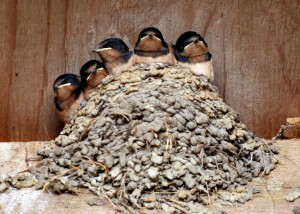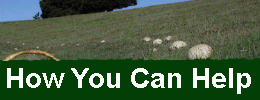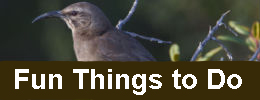What does conservation mean in the 21st century, and why is it so needed? The world faces an unprecedented loss of species as we enter the second decade of this century. As the renowned naturalist E.O. Wilson wrote, way back in 1980:
“The worst thing that can happen, will happen… Not energy depletion, economic collapse, limited nuclear war, or conquest by a totalitarian government. As terrible as these catastrophes would be for us, they can be repaired within a few generations. The one process going on in the 1980s that will take millions of years to correct is the loss of genetic and species diversity by the destruction of natural habitats. This is the folly our descendants are least likely to forgive us.”
Things have only worsened since then. Now we are losing species at unprecedented rates, and losing biodiversity within species as well. The primary reason for this unfolding environmental disaster is the loss of the habitat on which plants and animals depend. This is why the Zoo’s plans to bulldoze and develop Knowland Park, a known hotspot of biological diversity and intact ecosystems, are completely incompatible with authentic conservation.
We have learned, through failures, that we cannot simply transplant animals and plants to new locations and expect them to thrive: they (and we, if we could but recognize it) are part of complex ecosystems that have evolved over thousands of years to achieve a balance between predators and prey, plants, geography and weather—down to the tiny microorganisms in the soils that support particular types of plant growth.
The Oakland Zoo’s plans for expansion into Knowland Park are misguided and outdated in their vision. They reflect a 19th century vision of conservation, in which Man collected and displayed specimens of animals for the edification of the masses. Just as the essential roles and contributions of women to society were for many years rendered invisible in historical accounts that depicted Man as heroic, independent master of his Fate, so the focus on collecting and displaying individual, captive animals made invisible the wondrous interdependence of entire communities of plants and animals.
In the 19th century view, Man dominates Nature and subdues it. Nature is tamed, domesticated: admission is charged to view it, and programs tell us how to interpret what we see, taken out of its historic and geographic context. Nature is there primarily for humans to use.
In just this way, the proposed Zoo development relies on a signature grand ridgeline building as the epicenter of paid interpretive programs that will help us try to interpret what it means to display a captive grizzly bear, long-extinct from the area, in a secure enclosure in Knowland Park. The idea is to somehow reconstitute a long-ago time when grizzly bears lived in the East Bay hills. But it can’t be done. This is barely one step up from the now-obsolete circus animal show, even if we are this time riding an aerial gondola to get there, even if we now view a technological, interactive show about grizzlies instead of hearing the circus barker.
21st century conservation must be better than this. 21st century conservation is moving toward a vision of education in which humans experience themselves as part of Nature, rather than as dominating and controlling it. 21st century conservation does not require bulldozing rare remaining wildlife habitat in order to teach our children how important wildlife are. At its heart, 21st century conservation is really about cultivating human humility: recognizing how very much we do not know, and making the decision to preserve those places—like Knowland Park– that have so much to teach us.
 Ruth Malone is a resident of Oakland since 1983, a founding member and co-chair of Friends of Knowland Park and a longtime Oakland neighborhood activist. Since 2007, she has been working to educate and organize environmentalists, park users, and community members to protect the park. In her day job, she is a professor of nursing and health policy at University of California, San Francisco, where she helps students study the links between health and political, social and natural environments, and conducts research on the tobacco industry and its efforts to thwart public health efforts worldwide.
Ruth Malone is a resident of Oakland since 1983, a founding member and co-chair of Friends of Knowland Park and a longtime Oakland neighborhood activist. Since 2007, she has been working to educate and organize environmentalists, park users, and community members to protect the park. In her day job, she is a professor of nursing and health policy at University of California, San Francisco, where she helps students study the links between health and political, social and natural environments, and conducts research on the tobacco industry and its efforts to thwart public health efforts worldwide.
Ruth Malone’s Reflections Blog offers a combination of reflective essays and updates from the Protect Knowland Park Campaign, linking the fight to protect Knowland Park to broader environmental and ethical issues.

 Follow
Follow








Comments are closed.